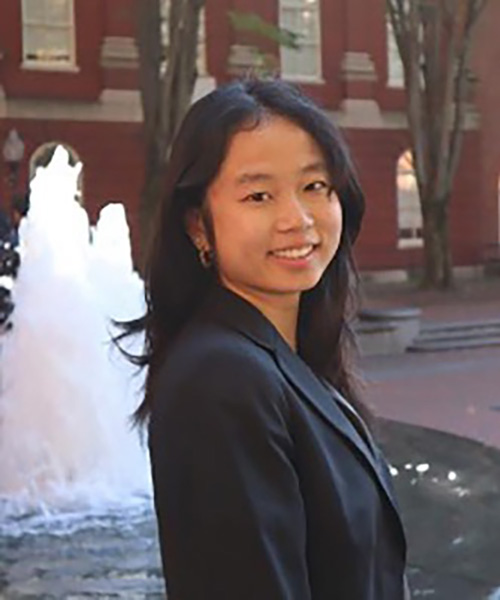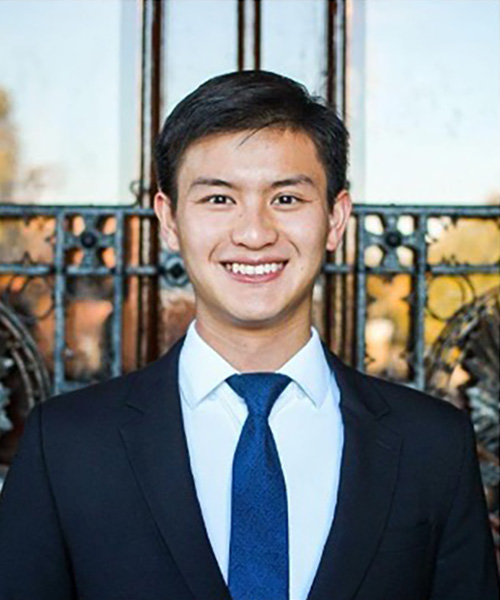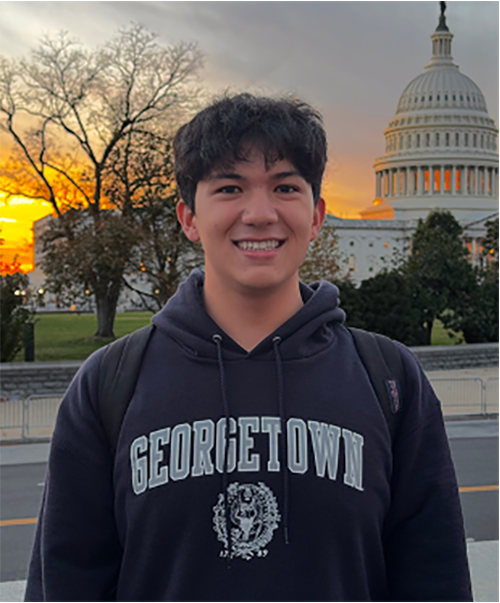
Beyond the Headlines: Bridging Divides through Dialogue
Zifei Zhao | May 15, 2025
Responding To: Georgetown Students Reflect on Virtual Exchanges with Tsinghua University
Tiffany Cowan
At Georgetown University, it’s not uncommon to find yourself immersed in group chats swapping links to public statements from world leaders, classroom discussions that frame U.S.-China relations in terms of winners and losers, and crisis simulations roleplaying potential conflicts in the Indo-Pacific. These have been some of the most formative experiences of my time at Georgetown, but I was also aware that my knowledge of China was mostly one-sided. I applied to the U.S.-China Student Dialogue because I wanted to spotlight and deconstruct the biases that shaped my understanding of China. For the first time, “China” wasn’t just a subject of study—it had faces, voices, and opinions.
Two sessions into the virtual dialogues, the topic of discussion was peace and security. My breakout group kicked off our discussion by listing the top three security issues for the United States, China, and Taiwan. National security is a broad term encompassing a range of issues from military defense to regime stability, so naturally these lists varied widely. However, what our group found was that our governments all have a shared desire for autonomy. In the same way different states interpret the concept of security differently, we agreed that the United States, China, and Taiwan also have different understandings of the word “autonomy.” For the United States, we often define it in terms of self-government, individual rights, and more recently under the Trump administration—energy independence. For China, autonomy means strengthening the domestic economy to insulate itself from a potential coalition of international sanctions. In Taiwan, some may interpret autonomy as formal independence, while others adopt a less provocative stance, viewing it as reducing the island’s import dependence.
We approached our discussion of Taiwan carefully. While we didn’t always agree, even in our differences of opinion I learned that diplomacy doesn’t always require agreement—just a willingness to stay engaged in conversation. We reflected on the U.S. and Chinese education systems, discussing how our countries teach university students about Taiwan. The conversation drifted to other aspects of the education system such as our universities’ policies toward artificial intelligence (AI), where we discovered that we had more in common with one another than we originally thought.
That brought us to another issue: How will military applications of artificial intelligence affect U.S.-China relations? Coming into the dialogues, I was doubtful that there would be much room for cooperation in this area. After all, judging by the immense amount of resources the United States and China are directing toward developing AI-enabled weapons systems, it is clear that AI is changing the pace and direction of military planning on both sides. However, our group found that since it is still early enough in the game, the United States and China can cooperate to establish the international norms that guide their application of AI to military technologies. One such area of cooperation is establishing a human-in-the-loop agreement for nuclear warheads, which I am more optimistic about given the November 2024 Biden-Xi talks.
Tiffany Cowan (SFS’25) is a student at Georgetown University studying international politics.

Zifei Zhao | May 15, 2025

Bennie Chang | May 15, 2025

Aanika Veedon | May 15, 2025

Luke Hughes | May 15, 2025

Daniel Castro Bonilla | May 14, 2025

Emmy Ekstrand | May 14, 2025

Isabella Stratta | May 14, 2025

Lam Tran | May 14, 2025

Maggie Yang | May 14, 2025

Drew Zacharias | May 14, 2025

Patrick Coggin | May 14, 2025

Raghav Akula | May 14, 2025